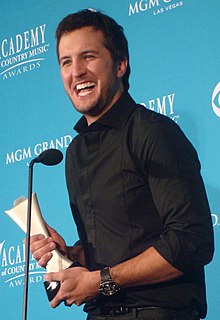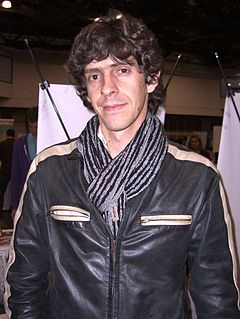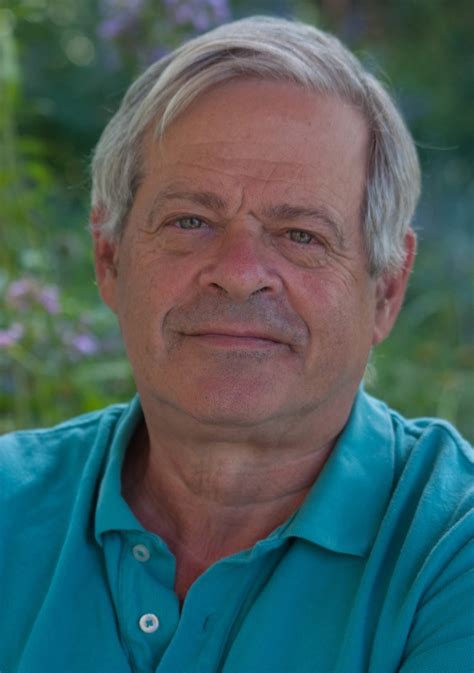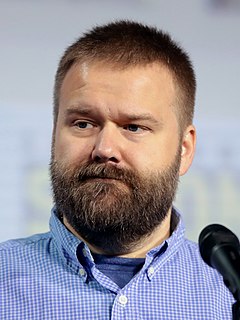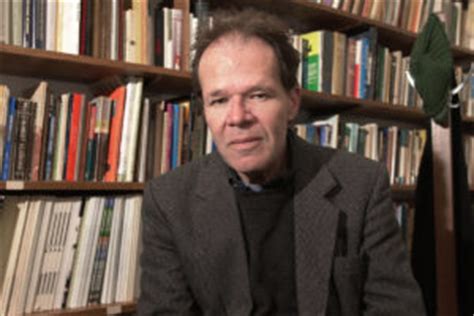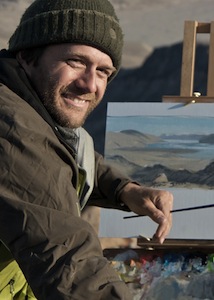A Quote by Wayne Gerard Trotman
I've decided I don't like books that end with 'The End'. The fact that there are no more pages, suggests to me that the book has ended.
Related Quotes
At times I believed that the last page of my book and the last page of my life were one and the same, that when my book ended I'd end, a great wind would sweep through my rooms carrying the pages away, and when the air cleared of all those fluttering white sheets the room would be silent, the chair where I sat empty.
When you write comic books and when you are writing for television, you're not writing the end product, you are writing notes for someone else to make the end product essentially. My scripts are just directions for the artist to draw pages and the pages are what is seen. I kind of feel like it's a safety net, you're able to hide behind the art to a certain extent, and in television you're able to hide behind the actors and the production, but with novels, your words are it
I work just as much as I always worked. And I can't explain the fact that there have been a series of books coming rather regularly out of me. I work most days and if you work most days and you get at least a page done a day, then at the end of the year you have 365. So the pages accumulate and then I publish the books.
I'm an anxious person in general, but something about being pregnant and awaiting the release of my first book, The Monsters Of Templeton, made me into an insane anxious person. I didn't sleep at night. I ended up sleeping all day. In a strange way I felt like the world was going to end. I found myself so deeply depressed at times that I started to read about happiness, and that took me into books about idealism and utopianism. Reading books about people who tried to build utopian societies of different kinds gave me a kind of lift.
I had tried writing novels for many years, and they always escaped me. For a long time, I thought, 'It's just not in me to write a novel. It's not something I'm able to do.' It seemed like everything I wrote naturally ended at the bottom of page three. A picture book, three pages; an essay, three pages.
You can't write a book if you've never read a book. And if you've read five books and you try to write a book, your book will mainly encompass the themes and the context of the five books you've read. Now, the more books you read, the more you can bring to a book when you decide to write one. So the more rap I learned, the more I was able to bring to rap when I decided to rap. But this was all subconscious.
In my couple of books, including Going Clear, the book about Scientology, I thought it seemed appropriate at the end of the book to help the reader frame things. Because we've gone through the history, and there's likely conflictual feelings in the reader's mind. The reader may not agree with me, but I don't try to influence the reader's judgment. I know everybody who picks this book up already has a decided opinion. But my goal is to open the reader's mind a little bit to alternative narratives.
There's a part of me with every book that thinks, What would it have meant for me tohave had this book when I was a kid? I decided to create a book for girls like me. The Littlest Bigfoot is about bullying and body image and girls who don't fit in. It's like training wheels for my adult books - like Sex and the City, but with 12-year-olds.
I used to comfort myself with the idea of a book with serrated, detachable pages, so that you could read the thing the way it came and then shuffle the pages, like a giant deck of cards, and read the book in an entirely different order. It would be a different book, wouldn't it? It would be one of infinite books.



